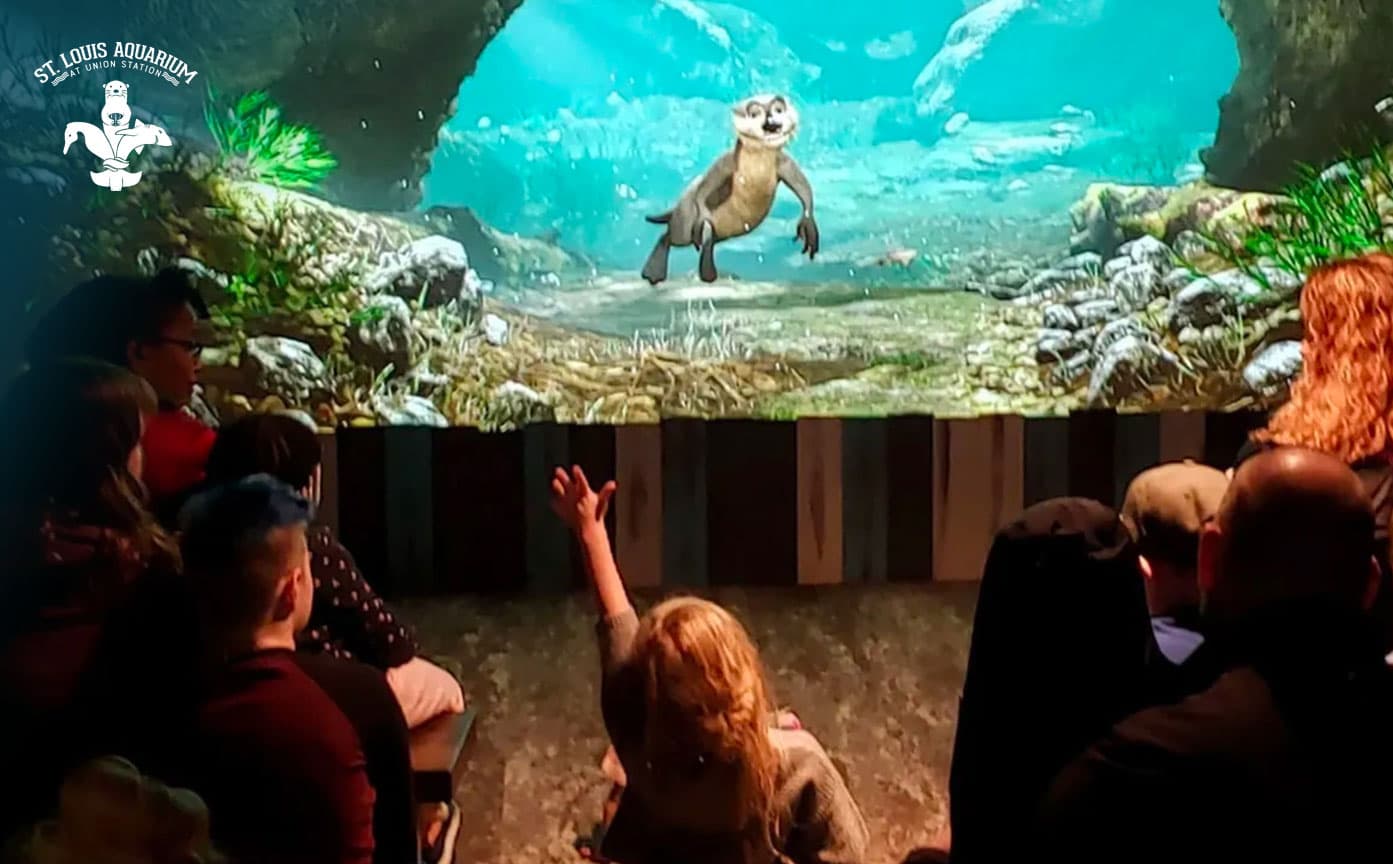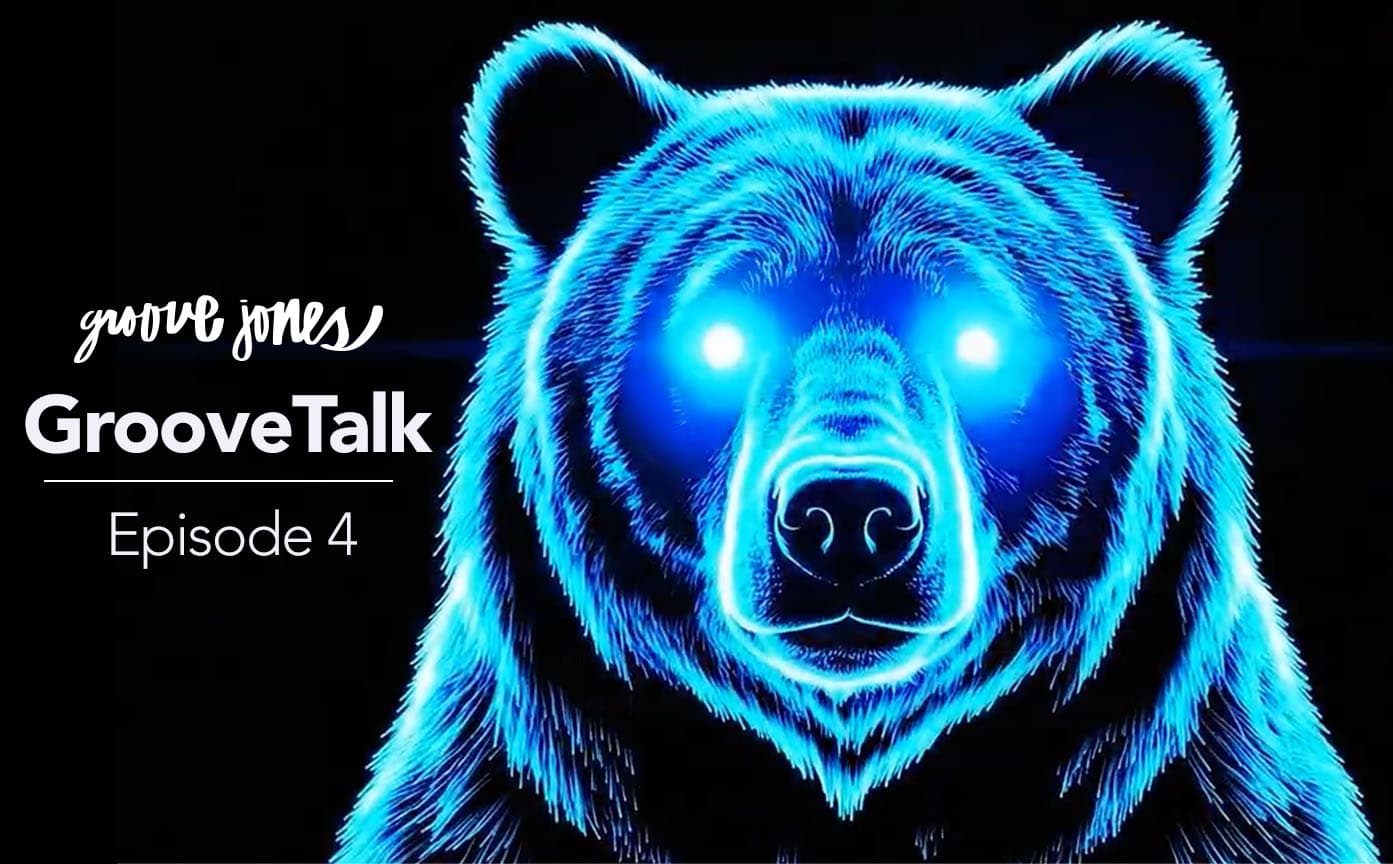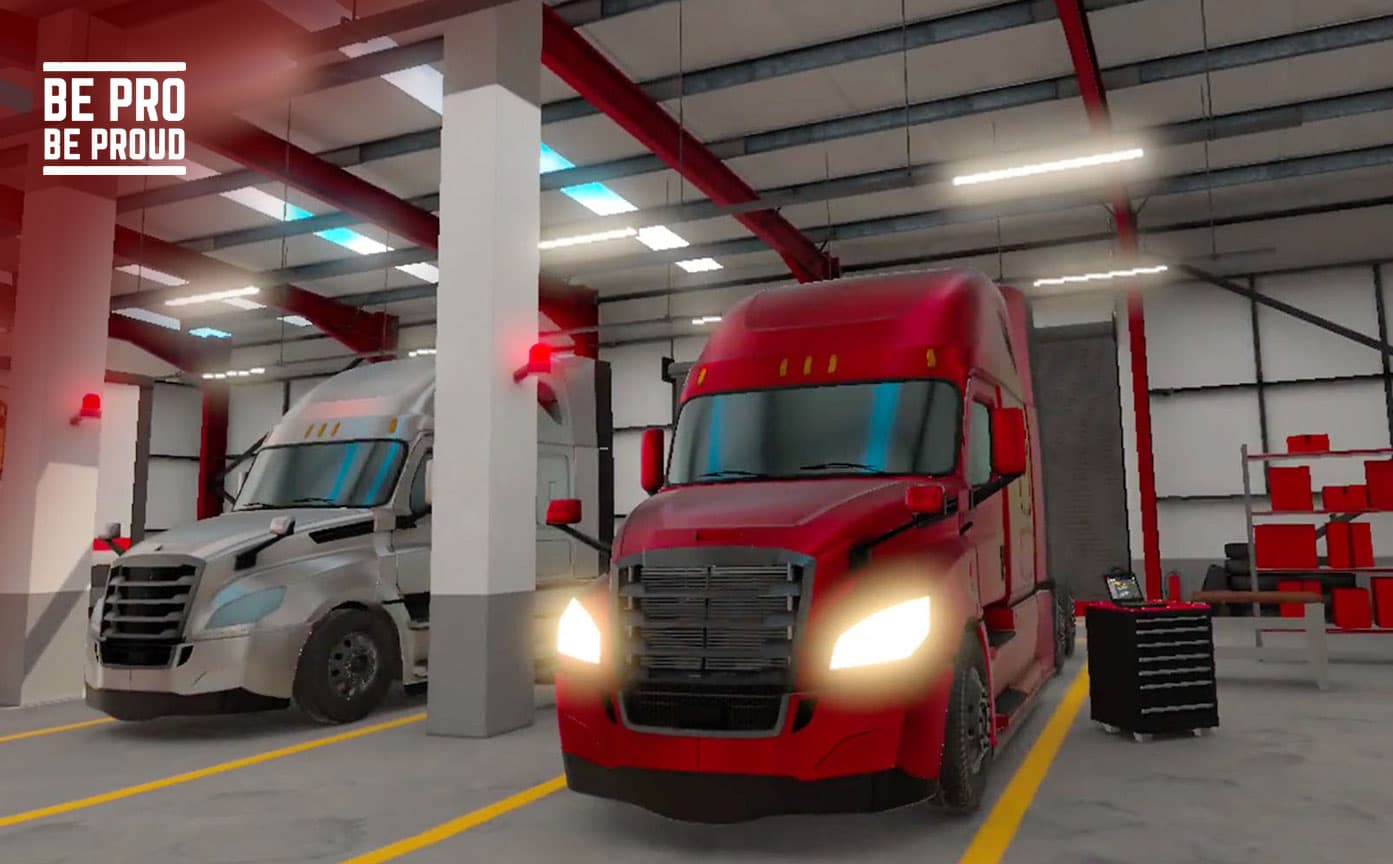
“Otter Chat” is an interactive talk show attraction featured at the new St. Louis Aquarium at Union Station. Designed by Groove Jones in collaboration with Moondog Animation, the attraction consists of an interactive improvisational conversation with Tommy the Otter, a North American River Otter, and the show’s star.

Our Avateer™ CGI real-time Character Puppet Animation System is the technology that powers the show system and allows the aquarium staff to teach guests about otters, conservation, and educational facts about how they live.

The show is part of the aquarium’s two-story habitat featuring three real North American River Otters named Thatcher, Sawyer, and Finn.

Guests to the aquarium can experience a fully interactive experience and engage with Tommy the Otter. Tommy asks questions and responds to the audience’s reactions in real-time. The show blends computer graphic techniques, educational content, and comedic improvisation by staff behind the scenes.

How Tommy the Otter Was Brought to Life
The show has an oversized screen view of Tommy the Otter’s habitat. This is similar to what visitors see throughout the aquarium. However, this view is computer-generated, portraying a CGI environment. The animated image of Tommy the Otter is a computer graphic avatar controlled by an actor backstage, whose performance is captured in real-time.
Real-Time Animation System for Guest Engagement
“Otter Chat” uses our GrooveTech™ Avateer ™ – CGI Real-Time Character Puppet Animation System, which allows actors to control the fully animated character in the theater attraction area. The tool consists of a facial tracking camera system that allows the actor to talk to the audience and automatically lip-sync their voice and movements to the animated character. This computer vision tracking and animation are rendered on the fly and are projected at 60 frames per second. Making Tommy the Otter’s mouth move in synchronization with the actor’s voice.

The GrooveTech™ Avateer ™ – CGI Real-Time Character Puppet Animation System includes handheld controllers that allow the actor to control the body motions of the character. The actor can also activate a series of prebuilt animation sequences as part of the show. The technology makes each show different as Tommy responds uniquely to each audience. The priority with real-time motion capture is to keep it simple, understandable, and easily operational for actors so that they can focus on bringing the character to life.

Mainly, when the installation is to be long-term and will involve less heavily trained actors performing multiple short shows every day, the setup needs to be simple, interactive, and easy to understand to allow the actors to focus on their improvisation with the audience without getting too caught up in non-intuitive functions.

Groove Jones took the Otter character created by Moondog, the outline of the script, and the basic functionality of the animated sequences, which needed to be triggered along the way, then created just this kind of system.
Behind The Scenes Video of the System
Without the budget or the need for full-motion capture suits, Groove Jones customized handheld controllers, which allowed the actors to move naturally and trigger animated functions, such as the Otter’s entrance and exits, without taking their eyes off the audience.

As the system was installed, performance director Henry Hagerty could use the design’s simplicity to get the actors immediately involved. Still, it also allowed him, through a series of improvisations with the actors, to break the scripts into 60-second units or performances, each with its own triggered animation cycles, so that very early on, the actors themselves could customize the flow of the show each day. There ended up being nine separate one-minute performance pods. They only need to program five segments for a five-minute show at a time. This interactivity allowed the actors to keep the show different and fresh daily.

The best real-time motion capture embraces the realities of who will be performing and their capabilities. By using commonly understood game technology, Groove Jones made this system intuitive and easy to learn for actors at any level at any venue in the world. The real-time render engine uses Epic Games Unreal Engine.
Staff Can React to Audience
Using cameras mounted in the theater, the hidden actors can see the audience with whom they interact. This allows the actor to refer to the specific appearance and behavior of particular questioners and their location in the theatre.

The actor’s performance combines semi-scripted educational information about the North American Otter and improvised responses to guests’ questions and comments. While the system is compelling and feature-rich, it is simple and intuitive, allowing a single actor to control the performance. This was important due to the client’s requirements around staffing. Currently, the system is being operated by four voice actors/actresses on staff.
Animation and VFX
Groove Jones built the show experience off of initial designs of the Tom the Otter character created by Moondog Animation. With their deep expertise in animation, the Groove Jones team used traditional keyframe animation to give unique pre-built animations for Tom, doing signature moves and performing actions that would be impossible for the actor to do, like swimming, diving, and catching fish.

The production utilizes the Unreal Engine for the real-time render portion of the production. Unreal Engine allows us to push the quality and look of our imagery while maintaining a smooth frame rate.

Computer Vision Facial Tracking Technology
We sculpted custom face shapes to help translate the actors’ faces to the unique qualities of the Otter character. Our goal is to bring Tom the Otter to life, really see “his” performance, and cross the invisible barrier to bringing him to life rather than seeing something puppetted by an actor.
![]()

Environment Work
we started with a traditional matte painting to find the general feel, lighting direction, and style for the environment. Then, we used the unique tools in Unreal to bring it to life in real time. Below, you can see how we transformed sketches into a realistic underwater world.


Accessories and Props
Tom wouldn’t be complete without his “Shell-phone.” This and a delightful school of fish accompany Tom in his underwater world. The fish use an innovative flocking system to swim around Tom.

Great Press for Launch
St. Louis CBS 4 did a live remote and received a private show. Nine Network’s Molly Saunders stopped by the St. Louis Aquarium at Union Station to visit with “Tommy” and the new North American river otters that just moved in right before the grand opening.


Groove Jones’ Work with other Institutions.
We make the museum, aquarium, sports, and cultural site experiences interactive, immersive, and compelling for visitors. Check out the work we have done with these other significant installations.
- The Ark Encounter – https://www.groovejones.com/animated-a-flood-of-reality-vr-motion-ride-experience-launches-at-the-ark-encounter/
- Denver Colorado Pepsi Center – https://www.groovejones.com/denver_nuggets_ar_mural/
- Toyota Experience Center – https://www.groovejones.com/toyota_tec_ar/
- National Aviation Education Center – https://www.groovejones.com/national-aviation-education-center-world-war-ii-nose-art-ar-app/
- Perot Museum of Nature and Science – https://www.groovejones.com/perot-museum-of-nature-and-science-interactive-music-sequencer-code-hero/
- Perot Museum of Nature and Science – https://www.groovejones.com/perot-museum-of-nature-and-science-origins-interactive-ar-experience/
- Perot Museum of Nature and Science – https://www.groovejones.com/dinaledi-chamber-lee-berger-perot-museum/
- Perot Museum of Nature and Science – https://www.groovejones.com/perot_museum_gems/
- Royal Caribbean International – https://www.groovejones.com/swashbuckler-multiplayer-vr-game-royal-caribbean/
About the St. Louis Aquarium
St. Louis Aquarium opened on Christmas Day in 2019. The aquarium is the last significant development in the historic former train station’s most recent $187 million transformation. Officials say the entertainment complex could be a top-tier destination along with the Gateway Arch and St. Louis Zoo. The two-story, 120,000-square-foot aquarium will feature over 13,000 animals in more than 1 million gallons of water sourced from local waterways. Check out the St. Louis Aquarium for more info – https://www.stlouisaquarium.com.




